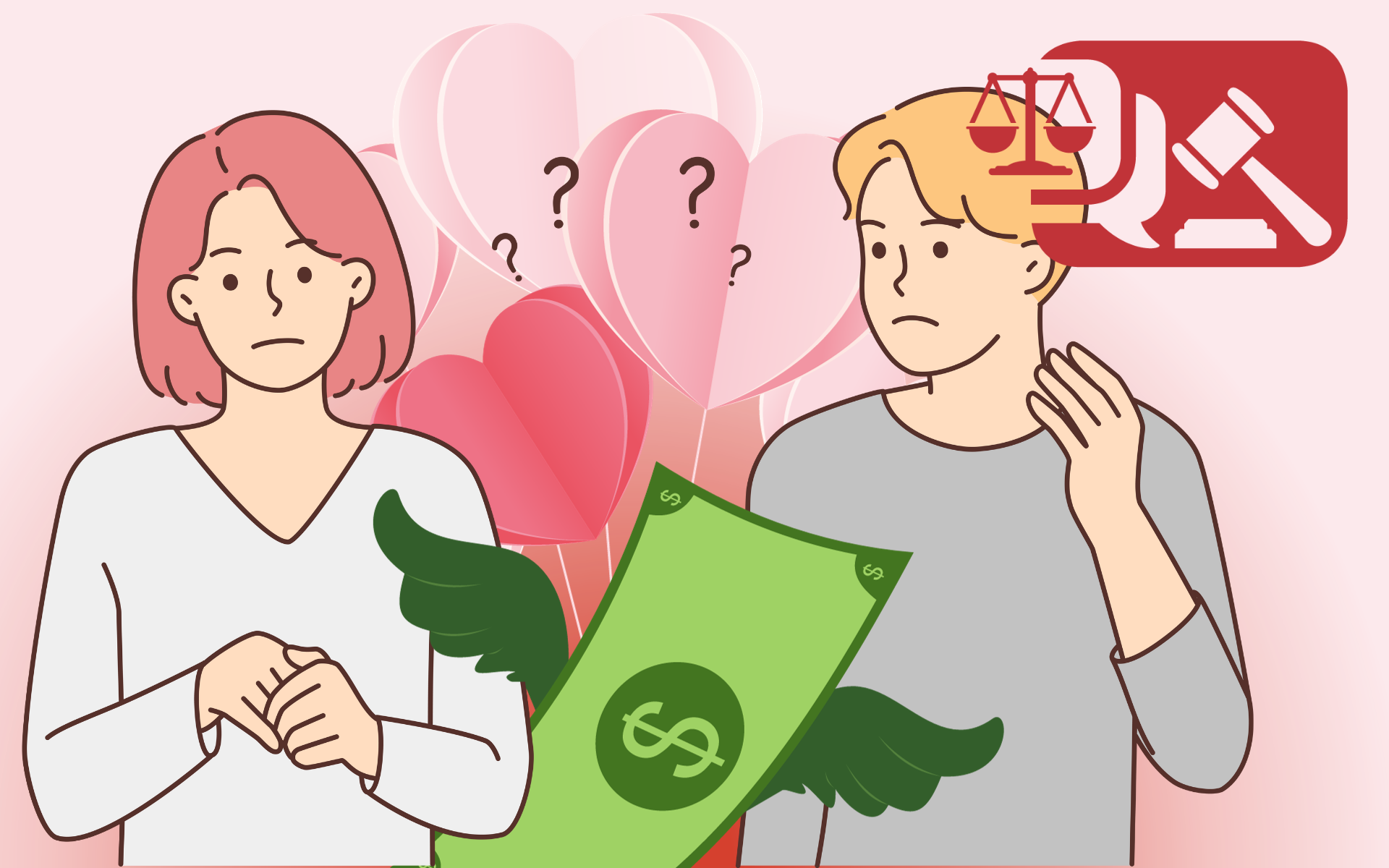The female named H. and the male named T. were lovers. During their relationship, T. asked H to borrow money several times. In addition, H. voluntarily paid for the expenses during their dates. When they broke up, H. asked T. to pay.

Can I ask for "love expenses" when breaking up?
When they met, H. voluntarily paid for the expenses incurred during the date, recorded them, and asked T. to pay all of them back to H when they broke up. Small expenses such as breakfast, parking, buying drinks, and large expenses such as traveling together, renting a hotel... After the breakup, H. continuously asked T. for money.
T. still intended to pay back the money that T. proactively asked to borrow, but because he did not have the money yet, he promised H. that he would pay when he had it. H. did not agree and posted an article exposing T. online, affecting T.'s reputation.
I would like to ask if T. is responsible for paying back the expenses that H. voluntarily paid during the dating process? If he does not pay, is there any violation of the law?
Are these amounts considered debt and is it illegal for H. to post online?
To answer the question of whether T. is responsible for repaying the money H. spent during their relationship, it is necessary to determine whether this is a gift relationship or a property loan relationship.
According to current law, the difference between these two relationships is whether the parties have an agreement that the recipient of the property is responsible for returning it to the party delivering the property.
Accordingly, if when H. makes the payment of "love expenses", H. and T. agree that H. will pay on T.'s behalf, and T. needs to repay these expenses to H., then this is a property loan relationship.
In this case, these are the amounts T. owes H. and T. is responsible for paying H. in full (if H. has evidence to prove it).
On the contrary, if H. proactively and voluntarily pays and T. agrees, and the two have no other agreement, then this is a property donation relationship. At this time, the "love fee" H. paid has become the property H. gave to T., not debt, so T. is not responsible for returning the above amounts to H.
Regarding H. posting "exposing" T. on social networks, according to the law, an individual's honor, dignity, and reputation are inviolable and protected by law. One of the prohibited acts on the Internet is seriously insulting the honor, reputation, and dignity of others.
Thus, depending on the content posted, H. may be administratively fined from 10 to 20 million VND for defaming an individual's reputation or criminally prosecuted for the crime of humiliating others/slandering others.
In order for H. to stop asking T. to pay the debt after T. has paid, T. can ask H. to meet to pay the borrowed amount. At the same time, T. can request the bailiff to make a record of T.'s payment to H. as well as H.'s commitment that T. has paid the full amount.
The certificate is a valuable source of evidence for the court to resolve the case when a dispute occurs, so it can ensure that H. will not continue to demand the money that T. borrowed before.
According to Tuoi Tre